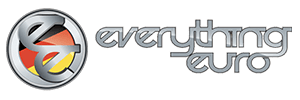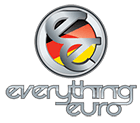When your beloved European car needs replacement parts, you’re faced with a crucial decision that can impact performance, reliability, and your wallet. Should you stick with Original Equipment Manufacturer (OEM) parts or explore aftermarket alternatives? This choice becomes even more significant when dealing with precision-engineered vehicles like Volkswagen, Audi, Porsche, BMW, and MINI Cooper.
Making the right parts decision affects everything from your vehicle’s performance to its resale value. European cars are built to exacting standards, and the parts you choose can either maintain that excellence or compromise it. Understanding the differences between OEM and aftermarket options will help you make informed decisions that align with your priorities, whether that’s maintaining factory specifications, managing costs, or enhancing performance.
At Everything Euro in Winston Salem, NC, we’ve helped countless European car owners navigate these decisions for over 15 years. Our factory-trained technicians understand the nuances of each brand and can guide you toward the best choice for your specific situation.
OEM Parts: The Gold Standard
Original Equipment Manufacturer (OEM) parts are components produced by the same companies that manufactured the original parts in your vehicle. When BMW uses a Bosch fuel pump in production, that exact Bosch pump sold through BMW is considered an OEM part. These parts maintain the precise specifications, materials, and quality standards that your vehicle was designed around.
Advantages of OEM Parts
Guaranteed Quality and Fit
OEM parts undergo rigorous testing to meet the manufacturer’s exact specifications. They’re designed to integrate seamlessly with your vehicle’s systems, ensuring optimal performance and longevity. This precision engineering means you won’t encounter fitment issues or compatibility problems that can plague some aftermarket alternatives.
Maintains Vehicle Warranty
Using OEM parts keeps your manufacturer’s warranty intact. If your Audi A4 experiences an issue related to a recently installed OEM part, your warranty coverage remains valid. This protection can save thousands of dollars on major repairs, especially during the critical first few years of ownership.
Reliability and Performance
European manufacturers spend millions developing and testing their components. OEM parts deliver the exact performance characteristics your vehicle was engineered to provide. Whether it’s the precise fuel delivery of a Porsche injector or the exact braking feel of BMW pads, OEM parts maintain your car’s intended driving experience.
Potential Disadvantages of OEM Parts
Higher Cost
OEM parts typically cost 25-50% more than comparable aftermarket options. This premium pricing reflects the research, development, and quality control invested in each component, but it can strain budgets, especially for older vehicles requiring multiple repairs.
Limited Availability
Some OEM parts, particularly for older European models, can have extended lead times or limited availability. Discontinued parts may require sourcing from specialty suppliers or result in longer repair times that keep your vehicle off the road.
Aftermarket Parts: A Cost-Effective Alternative?
Aftermarket parts are components manufactured by companies other than the original equipment supplier. These range from basic replacement parts to performance upgrades designed to exceed OEM specifications. The aftermarket industry for European cars has grown sophisticated, with many suppliers offering quality alternatives to factory parts.
Advantages of Aftermarket Parts
Lower Cost
Aftermarket parts typically cost 20-60% less than OEM equivalents. For vehicles outside warranty periods or owners managing tight budgets, this cost savings can make the difference between affordable maintenance and financial strain. A full brake job with quality aftermarket pads and rotors might cost $400 instead of $700 with OEM components.
Wider Availability and Variety
Aftermarket suppliers often maintain larger inventories and faster shipping than dealership parts departments. Many popular European car parts are available for next-day delivery, reducing downtime. The variety is extensive—you might find five different brake pad compounds where OEM offers only one option.
Potential for Improved Performance
Some aftermarket parts are engineered to exceed OEM specifications. Performance brake pads might offer better heat resistance for track driving, while upgraded suspension components could improve handling beyond factory settings. For enthusiasts modifying their vehicles, aftermarket options provide possibilities that OEM parts simply don’t offer.
Potential Disadvantages of Aftermarket Parts
Variable Quality
Quality ranges dramatically across aftermarket suppliers. While premium brands like Febi, Lemförder, or Pagid often match or exceed OEM standards, budget options may use inferior materials or less precise manufacturing. A cheap oil filter might save $10 but could fail prematurely and damage your engine.
May Void Warranty
Installing aftermarket parts can void specific warranty coverage, depending on your manufacturer’s policies and the type of part. While the Magnuson-Moss Warranty Act provides some protection, proving that an aftermarket part didn’t contribute to a failure can be challenging and expensive.
Fitment Issues
Not all aftermarket parts achieve the precise tolerances of OEM components. Slight dimensional differences can cause vibrations, leaks, or premature wear. A poorly fitting exhaust system might develop rattles, while an imprecise brake rotor could cause pedal pulsation.
Key Considerations When Choosing Parts
Vehicle Type and Model Specifics
Volkswagen and Audi
These brands share many components across their platforms, creating a robust aftermarket. Quality aftermarket options from suppliers like Febi Bilstein or FAG often provide excellent value. However, complex systems like DSG transmissions or quattro all-wheel drive benefit from OEM precision.
Porsche
Porsche’s performance focus makes OEM parts particularly important for engine and drivetrain components. While aftermarket brake pads and suspension components can enhance performance, critical engine internals should typically remain OEM to maintain reliability.
BMW and MINI Cooper
BMW’s advanced electronics and precise engineering often favor OEM parts, especially for sensors and control modules. However, wear items like brakes, filters, and suspension components have excellent aftermarket alternatives from suppliers like Lemförder and Sachs.
Driving Style and Usage
Your driving habits significantly influence the best parts choice. Daily commuters prioritizing reliability and cost-effectiveness might choose quality aftermarket options for routine maintenance items. Weekend enthusiasts pushing their cars on back roads or track days often benefit from performance-oriented aftermarket upgrades or OEM precision for critical components.
Budget Considerations
Balancing cost with quality requires strategic thinking. Consider spending OEM money on critical safety systems like brakes and steering while choosing quality aftermarket options for items like air filters and cabin filters. For older, high-mileage vehicles, well-chosen aftermarket parts can extend service life economically.
Warranty Impact
Understanding your warranty status helps guide decisions. Newer vehicles under factory warranty typically benefit from OEM parts to maintain coverage. Vehicles with expired warranties have more flexibility to choose cost-effective aftermarket alternatives without warranty concerns.
Professional Consultation
Experienced European car technicians provide invaluable guidance for parts selection. They understand which aftermarket brands consistently deliver quality and which systems require OEM precision. At Everything Euro, our factory-trained technicians leverage over 50 years of combined experience to recommend the best parts for each specific situation.
Everything Euro: Your European Car Parts Experts
Choosing the right parts for your European vehicle requires expertise that goes beyond generic automotive knowledge. Everything Euro has specialized exclusively in Volkswagen, Audi, Porsche, BMW, and MINI Cooper since 2009, building deep understanding of each brand’s unique characteristics and requirements.
Our team brings exceptional qualifications to every parts decision. Our technicians have graduated from extensive VK Academy training, received factory training on each manufacturer’s vehicles, and carry Bosch auto certifications. This specialized knowledge means we understand which parts will deliver the performance, reliability, and value you need.
Owner Tom Landock III’s passion for European vehicles began in his father’s garage at age eight, working on Volkswagen engines. This lifelong dedication to European automotive excellence drives our commitment to helping customers make informed parts choices. Whether you need routine maintenance or performance upgrades, our team provides guidance based on real-world experience with thousands of European vehicles.
We offer comprehensive warranty coverage up to three years or 36,000 miles, providing peace of mind regardless of whether you choose OEM or aftermarket parts. Our competitive pricing and relationships with quality suppliers ensure you receive excellent value without compromising on quality.
Located in Winston Salem, we serve European car owners throughout the Triad region, including High Point and Kernersville. Our facility is equipped with the latest diagnostic equipment and tools specifically designed for European vehicles, ensuring proper installation and optimal performance from every part we install.
Making the Right Choice for Your European Car
The decision between OEM and aftermarket parts isn’t always black and white. Each option offers distinct advantages depending on your vehicle’s age, your driving needs, and your budget priorities. OEM parts provide guaranteed quality and warranty protection, while quality aftermarket alternatives can deliver excellent value and sometimes superior performance.
Consider your vehicle’s specific requirements, your driving style, and long-term ownership plans when making parts decisions. Newer vehicles under warranty typically benefit from OEM parts, while older vehicles might achieve better value with carefully selected aftermarket options. Critical safety and performance components often justify OEM investment, while routine maintenance items might work well with quality aftermarket alternatives.
The key is working with knowledgeable professionals who understand European vehicles’ unique characteristics and can guide you toward the best choice for your specific situation. Don’t let parts decisions compromise your vehicle’s performance, safety, or reliability.
Contact Everything Euro today to discuss your European car’s parts needs. Our factory-trained technicians will help you navigate the OEM versus aftermarket decision, ensuring you get the right parts at the right price for your Volkswagen, Audi, Porsche, BMW, or MINI Cooper. Schedule your consultation and experience the difference that specialized European car expertise makes.

